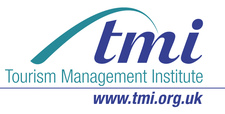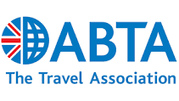Book an open event
The postgraduate online event on the 17 June – 21 June 2024 is the perfect opportunity to find out more about your course of interest, speak with our academics, and discover the opportunities that further study has to offer.
Join us live to learn more about:
- Your chosen course: Speak to our friendly teaching staff about courses, module content and delivery methods
- Employment prospects: Understand work placement opportunities, industry connections, and course accreditations
- Support services: Get all the information you need about admissions, accommodation and student finance
- Life at Herts: Hear from our students about their postgrad student experience at Herts
MSc International Tourism, Hospitality and Event Management with Placement Year
Why choose Herts?
- Advanced research option: You have an opportunity to develop enhanced critical and research skills which could be a great asset to you in either a work environment or in academia.
- Employment prospects: Graduates are working as hotel customer relations managers, travel agents, and airline staff for organisations including Four Seasons Hotels and Resorts, Expedia Group, and TUI.
- Industry accreditations: The University is a member of the Tourism Management Institute (TMI), Association of British Travel Agents (ABTA), and the Association for Event Management Education (AEME).
Professional Accreditations
The University is member of the Tourism Management Institute (TMI), Association of British Travel Agents (ABTA) and the Association for Event Management Education (AEME).



About the course
MSc International Tourism, Hospitality and Event Management has been designed to provide you with the enhanced skills and knowledge which are necessary to support key decision-making within the international tourism, hospitality and event industries. The programme is underpinned by a strong theoretical base across a number of contexts relevant to tourism, hospitality and event management in contemporary international environments. A distinctive feature of this programme is that it offers you opportunities to interact with current industry practitioners and therefore enables a hands-on approach.
The programme is offered full time (1 year mode) or part time (2 year mode). A new sandwich version is also offered in full time on a 2 year mode. The sandwich programme requires you to successfully complete a minimum of 36 weeks full-time work placement. This is a very valuable experience which allows you to familiarise themselves with the day to day activities of Tourism, Hospitality and Event businesses, and to use your initiative in dealing with issues of the work environment.
Why choose this course?
Our Postgraduate studies are sector leading amongst over 100 Higher Education Institutions in the UK as evidenced by our extraordinary achievement:
- 1st out of 85 universities for business and management in the Postgraduate Taught Experience Survey (PTES, Advance HE, 2023)
- 1st for Skills Development, 2nd for Support, Resources, Community and Assessment (Advance HE, 2023)
- The course offers you comprehensive knowledge of the Tourism, Hospitality and Event industries.
- It is delivered by a very successful and internationally renowned team of experts, both in terms of their managerial experience and academic knowledge.
- It offers a balance of practical input and academic knowledge to support graduates in their future careers within these industries.
- It provides opportunities to interact with current industry practitioners.
- It presents flexibility to study full time, part time and it offers the possibility to undertake a work placement.
What will I study?
We offer a varied programme of teaching that includes facilitated seminars, practical workshops, projects for companies, web-based learning, case study analysis and traditional lectures. We also provide sessions by visiting staff, practitioners and consultants to give a varied perspective of the topics covered. You will be assessed through a variety of coursework including presentations, reports and projects. You will also be required to complete a dissertation and will be supported by a dissertation supervisor.
Key staff
Dr Sofia Reino
Programme Leader
Find out more about Dr Sofia Reino
Further course information
| Course fact sheets | |
|---|---|
| MSc (SW) International Tourism, Hospitality and Event Management | Download |
| Programme specifications | |
|---|---|
| MSc (SW) International Tourism, Hospitality and Event Management | Download |
| Additional information | |
|---|---|
Sandwich placement or study abroad year |
Mandatory |
Applications open to international and EU students |
Yes |
